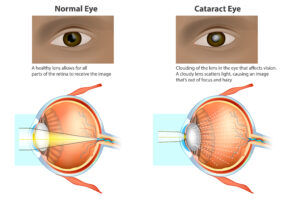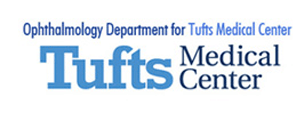Cataracts are one of the most common age-related eye conditions you can develop. Half of all adults will have at least one cataract once they’ve turned 75.
Although you can develop cataracts at any age, your risk of this increases significantly once you’re in your forties. Cataracts can prominently affect your vision and may even lead to complete loss of sight.
However, one form of treatment for cataracts can remove them: undergoing cataract surgery. When you have cataracts, you may not even notice them at first since they develop incredibly slowly over time.
It can sometimes take several years or decades to realize you have them, especially without a diagnosis from an eye doctor. If you are diagnosed with cataracts, you may not need treatment immediately. Then the question becomes, when do you get cataract surgery?
It depends on a few factors. Keep reading to learn more about knowing when to have cataract surgery!
What Are Cataracts?

Cataracts happen when the lens in your eye becomes cloudy. When the lens gets cloudy, it distorts your vision, making it harder to see clearly. The older you are, the more likely it is that the cells that make up the lens will harden and make the lens more opaque.
Cataracts are also linked to other factors, like eye injury and diabetes. You’re also more likely to develop cataracts earlier in life if your eyes have been damaged by frequent UV exposure, tobacco use, and heavy drinking.
If you’re over 40 or exhibit any of these risk factors, you should be aware of cataract symptoms to look out for, as you’re more likely to develop cataracts at an earlier age.
Cataract Symptoms

Cataract symptoms include:
- Blurry vision
- Glare and halos
- Light sensitivity
- Poor night vision
- Trouble seeing contrast
An early sign of cataracts is also seeing double in one eye. Only seeing double in one eye may indicate that you have cataracts before developing any other symptoms.
Cataracts Can Take Years to Develop
However, the issue with many of these symptoms is that they can be hard to notice since they develop slowly over many years. Cataract symptoms are sometimes attributed to worsening vision due to aging or presbyopia.
Presbyopia is the decreased ability to see up close due to age and occurs when the lens loses flexibility. Many people who have cataracts also have presbyopia, making symptoms even more difficult to identify. But there are some differences that you should be aware of.
Cataracts vs. Presbyopia
When you have presbyopia, it makes it harder for your eyes to focus on objects up close, making reading or completing other detailed tasks difficult. Cataracts can also make completing complex tasks difficult, but for a different reason.

Because cataracts make it harder to see in low light, it can be harder to read without plenty of light. It can be hard to differentiate between having trouble seeing up close and seeing without enough light. Still, if you see significantly better when you have direct light, that’s a sign the issue is probably cataracts.
Struggling to Drive at Night is a Sign of Cataracts
Another strong indicator that your visual issues are primarily due to cataracts is if you struggle to drive at night. Because cataracts make it harder to see in low light and make glare more intense and your eyes more sensitive to light, driving at night can be very difficult.
If you struggle driving at night, you likely have advanced cataracts. But the only way to know for sure and receive treatment is to see an eye doctor for a diagnosis.
Cataract Surgery
By the time you’re 40, you should be seeing an eye doctor at least every year or two. Seeing your eye doctor regularly should help you identify cataracts if you have them in the early stages.
But if your cataracts develop more quickly or you don’t see an eye doctor regularly, you may develop significant symptoms before having your eyes examined. If you find yourself struggling to see due to the cataract symptoms listed above, you should see an eye doctor as soon as possible to have your eyes examined.
However, even if you find out you have cataracts, you may not need cataract surgery yet. Most cataract surgeons recommend removing cataracts once they are making it difficult to complete everyday tasks or you’re struggling to do things you love.
You may find out you have cataracts and do not need surgery to remove them for several years. Cataracts can develop very slowly, so if you’re of a certain age and they’re diagnosed in the early stages, you may never need cataract surgery.
Cataract surgery is usually considered medically necessary to prevent blindness or restore your vision, so most medical insurances cover it. But it’s an elective procedure, and it’s ultimately up to you when to get cataract surgery.
Cataract surgeons recommend that you have cataract surgery when your cataracts affect your quality of life. It can be subjective if you don’t realize that you have difficulty with daily tasks because of issues with your vision.
Signs to Have Cataract Surgery
But there are some definitive signs that it’s time for cataract surgery. One of the biggest ones is that you have trouble driving at night.
Another is if you’ve fallen or been injured because you had trouble seeing properly. But even just struggling to see day-to-day can affect your life and make daily tasks harder.

Cataract surgery can completely restore your clear vision, giving you back your independence, making your life much easier. It’s also the most commonly performed medical procedure in the country and is considered very safe.
If your cataracts are making your life difficult, you should consider having cataract surgery as soon as possible. Learn more about cataract surgery by scheduling an appointment at New England Eye Center in Boston, MA, today!




